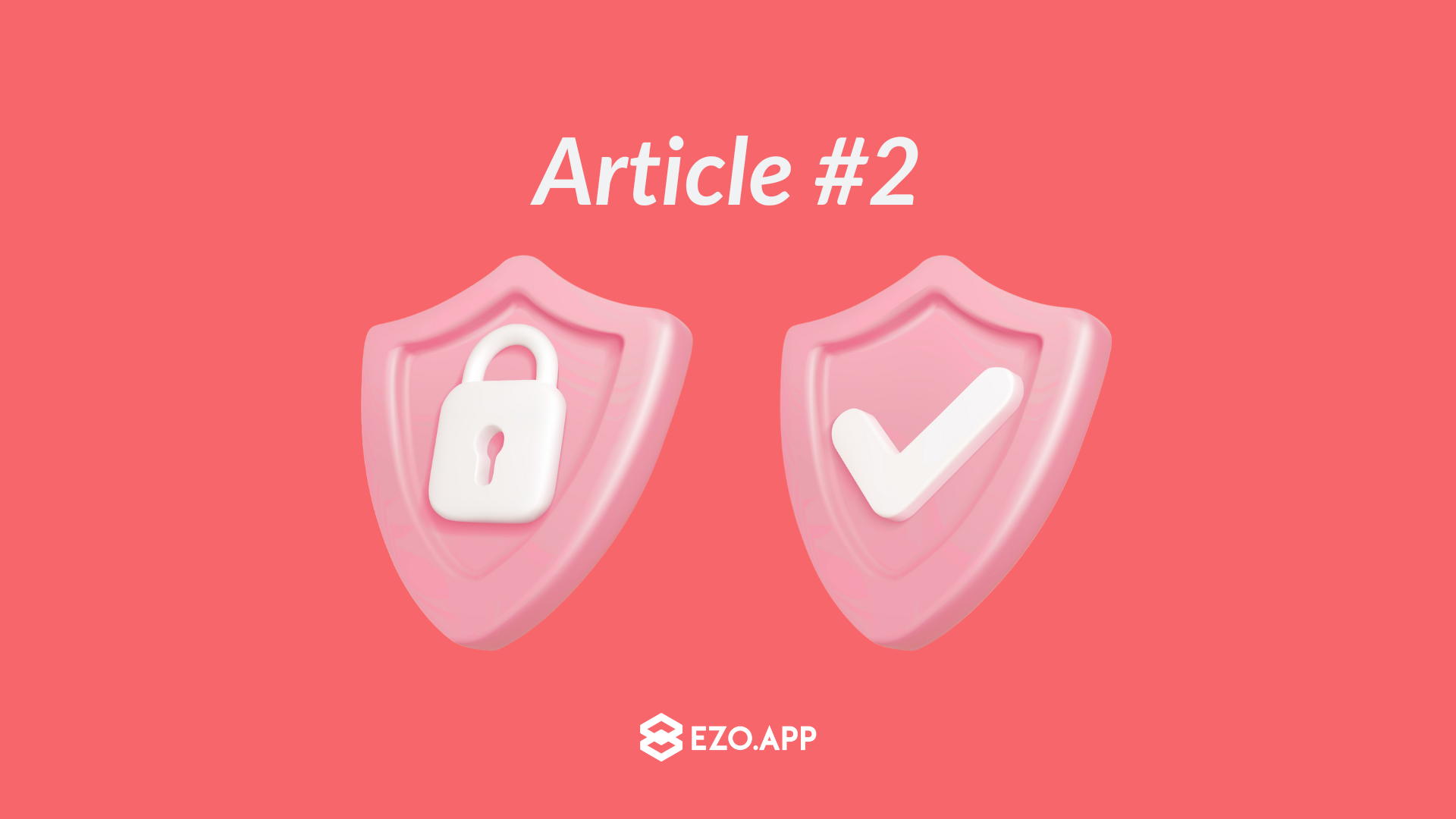Crypto in Canada: A Look into Demographics, Public Sentiment and Regulations
Canada has a growing crypto community and regulatory scene. Learn all about them in this article.

Investors looking to buy crypto in Canada may wonder what the national conversation around digital assets looks like. While crypto and Bitcoin have taken center stage in the lead-up to the 2024 U.S. presidential election and under President Trump, they remained largely absent from political discourse during Canada’s most recent federal election. Nonetheless, crypto is steadily gaining momentum around the world—Canada, home to numerous crypto and blockchain events bringing the community together, is no exception.
In this article, we explore the evolving Canadian crypto landscape. We delve into the demographics of crypto adopters, examine overall sentiment toward digital currencies and unpack the regulatory framework shaping their use.
As global interest surges and domestic engagement deepens, what lies ahead for Canada’s crypto community?
Demographics
Who Owns Crypto in Canada?
In 2023, 10% of Canadians owned cryptocurrencies, down from 13% from the year before, which was marked by a Bitcoin price crash. Yet, some sources project over 30% of user penetration rate in Canada for 2025, indicating an expectation for a resurgence in interest driven by improved regulatory clarity, market recovery and growing mainstream adoption.
On one hand, crypto adoption in Canada skews young, with ownership rates declining significantly with age. 26% of surveyed Gen Z reported owning crypto compared to as few as 6% of surveyed baby boomers.
On the other hand, there exists a gender gap in the Canadian crypto scene, reflecting a broader global trend. Men are 1.5 times more likely to be crypto owners than women. A Bank of Canada report additionally shows a gender gap in financial and crypto literacy, with women, regardless of ownership status, being more likely than men to answer questions about crypto knowledge incorrectly or with uncertainty.
Higher-income individuals with high educational attainment are also more likely to hold Bitcoin. A median investment of $500 indicates many among the reported statistics of crypto owners opt for small amounts to hold.
Crypto ownership in Canada is largely concentrated in urban areas, with provinces like Alberta, Ontario and Quebec emerging as key hubs for digital assets. Canada also ranks second globally—behind the United States—in Bitcoin ATMs, with over 3,600 machines spread across the country.
What Kind of Crypto Do Canadians Own?
Bitcoin (BTC) is by far the most popular cryptocurrency Canadians own, followed by Ether (ETH) of the Ethereum blockchain network—the two cryptocurrencies are predominant everywhere, so much so that other cryptocurrencies are deemed “alternative” coins. Canadians also purchase altcoins, the most popular of which in Canada includes Dogecoin, XRP and Solana.
Why Do Canadians Buy Crypto?
Motivations for buying crypto in Canada vary among owners. The most common reason cited for buying crypto is as a "speculative investment or gamble”. With the price of cryptocurrencies being particularly volatile, many hope to profit from day-to-day price swings. Indeed, short-term speculation has become relatively more prevalent than long-term investment in crypto, with 20% of long-term crypto investors in 2023 compared to 29% in 2022.
Portfolio diversification, hedging against inflation and traditional markets, curiosity about the technology and transaction speed are other reasons enthusiasts cite for buying crypto in Canada.
Crypto Adoption & Sentiment
Enthusiasm and Caution
The 2022 crash hit the crypto community hard. Since then, the public has adopted a more cautious approach to digital assets. While general public confidence in cryptocurrencies is reported to have dropped, proponents retain great trust and interest in crypto. Canadians who are aware of cryptocurrencies but do not own any tend to rate them a 4.3 out of 10, whereas crypto owners on average rate their impression of cryptocurrency a 6.6/10. Young people have a better impression of cryptocurrencies overall.
Yet, the crypto community could gain from the prudence the general population exercises—half of current cryptocurrency owners had not verified the registration status of the crypto exchange or money services businesses authorized to deal with virtual currency whose services they used, and 13% of them were not sure they had. Registration status verification, while not foolproof, can safeguard against the more obvious scams—the rise of which negatively influences the position of cryptocurrency in the minds of Canadians.
Public sentiment toward cryptocurrency in Canada may shift as advancements in the U.S. and UK shape global narratives, though ongoing tensions in Canada–U.S. relations could temper cross-border policy alignment.
Support for a Collaborative Approach
Despite the enthusiasm gap that exists between the general population and the crypto community, the sentiment towards cryptocurrencies in Canada is not all negative. A 2023 Nanos survey found that 60% of Canadians support a collaborative approach to crypto regulation, with government and industry working together to encourage innovation while protecting consumers.
Interestingly, support for a collaborative, regulated approach to cryptocurrency is strongest among Canadians aged 55 and older (33%) and residents of British Columbia. This trend stands in contrast to the relatively low ownership rates among older age groups, suggesting a more nuanced attitude: while older Canadians may not be active crypto investors, they are not inherently resistant to the concept.
Instead, their hesitation may stem from a desire for greater clarity, security and institutional oversight. For many in this demographic, the introduction of thoughtful regulation could help alleviate their concerns and foster a deeper understanding of cryptocurrency. As institutional crypto investors and financial services organizations are increasingly embracing cryptocurrency, public trust in digital assets may grow across a broader range of demographics.
Crypto in Canada and Wealth Disparity
The 2022 Bitcoin crash affected public sentiment towards cryptocurrency. Prior to plummeting, the price of Bitcoin had skyrocketed, propelled by general enthusiasm about the cryptocurrency. High inflation and interest rates, the rise in cybercrimes and crypto bankruptcies and, finally, broader macroeconomic concerns about the market following the Russian invasion of Ukraine all contributed to the crash.
Crypto in Canada—and globally—presents a high-risk, high-reward investment, largely driven by its inherent volatility. Many tech-savvy and financially literate investors reaped substantial gains from early Bitcoin investments, well before the peak of the cryptocurrency bubble. In contrast, latecomers—motivated by viral success stories and fear of missing out—often entered the market at inflated prices, only to face steep losses during downturns.
This disparity has deepened the divide between those with the knowledge, timing and risk tolerance to navigate the crypto space, and those without, who often rely on anecdotal information or social media hype. The result is a growing form of digital wealth inequality, where financial opportunity in the crypto realm disproportionately favors those with the time and the money to invest in deeper crypto understanding and knowledge. This, in turn, fuels skepticism and contributes to a negative public perception of cryptocurrency as a speculative tool rather than a viable financial innovation.
Mark Carney and Crypto
Mark Carney, former governor for the central banks of Canada and England and newly-elected Prime Minister of Canada, shared in his book that he does not believe in the long-term viability of cryptocurrencies, preferring instead the development of a central bank digital currency (CBDC)—criticized by some crypto proponents as being antithetical to crypto itself. In any case, the implementation of such a centralized digital currency is not yet a priority as part of the Liberal Party platform.
Despite his cautious stance on crypto, Carney has held senior roles at firms known for their openness to digital assets—serving on the board of Stripe, a crypto-friendly financial infrastructure company, and as vice-chairman of Brookfield Asset Management, which has explored blockchain applications. He stepped down from both roles in January 2025 to enter politics.
Carney has additionally advocated for a balanced regulatory approach to cryptocurrencies. In 2018, he warned policymakers against stifling innovation. True to that philosophy, his 2025 electoral platform emphasizes making Canada a leader in technological innovation, with a focus on artificial intelligence, the digital economy and emerging tech sectors. While he does not explicitly reference cryptocurrencies in this vision, supportive policies for fintech and digital infrastructure could still open doors for crypto-related innovation.
Regulatory Scene
The regulatory scene for crypto in Canada is rapidly evolving, but understanding the bases of it can help investors make better decisions and avoid falling victim to fraud. There are two types of non-bank business entities allowed to deal with virtual currency in Canada: money services businesses (MSB) and crypto trading platforms (CTP).
Financial Transactions and Reports Analysis Centre: Money Services Businesses
Companies offering crypto services in Canada are classified as money services businesses for the purposes of anti-money laundering and counter-terrorist financing (AML/CTF) under the authority of the Financial Transactions and Reports Analysis Centre (FINTRAC). The activities of money services businesses are restricted to non-custodial activities involving the purchase or the sale of cryptocurrencies in Canada that are to be delivered immediately to the client. Holding cryptocurrency for clients as a business activity falls into securities law requirements and requires additional registration with other regulatory bodies.
Under the Proceeds of Crime (Money Laundering) and Terrorist Financing Act (PCMLTFA), money services businesses (MSBs) in Canada are required to establish a comprehensive anti-money laundering (AML) and counter-terrorist financing (CTF) compliance program. This includes conducting Know Your Client (KYC) procedures, as well as customer due diligence (CDD) and enhanced due diligence (EDD) when appropriate.
MSBs are also obligated to file Large Virtual Currency Transaction Reports with FINTRAC for any single receipt of $10,000 CAD or more in virtual currency. Additionally, they must comply with travel rule requirements, which mandate the inclusion of both originator and beneficiary information for cryptocurrency transfers exceeding $1,000 CAD.
Bank of Canada: Payment Service Providers
The Retail Payment Activities Act (RPAA) mandates any business, including crypto businesses, which holds funds on behalf of users, transfer funds (including virtual currency) from one party to another or provide payment initiation services to be registered with the Bank of Canada as a payment service provider (PSP).
Canadian Securities Administrators: Restricted Dealers, Investment Dealers and Virtual Asset Services Providers
While Bitcoin and Ethereum are generally not classified as securities under Canadian law, businesses that hold or manage crypto assets on behalf of clients—such as exchanges and custodians—are still subject to securities regulation. Under the framework established by the Canadian Securities Administrators (CSA), these activities may trigger registration requirements, particularly if they involve custodial functions, trading platforms or crypto contracts that resemble investment instruments.
Entities offering custody of crypto assets must register as a Restricted Dealer or under another applicable category with their provincial or territorial securities regulator. For example, in Quebec, oversight is provided by the Autorité des marchés financiers (AMF). Virtual Asset Services Providers (VASPs) must comply with rules around safeguarding client assets, maintaining capital requirements and ensuring operational transparency.
In addition, the CSA and Investment Industry Regulatory Organization of Canada (IIROC) have jointly developed a regulatory regime for crypto asset trading platforms (CTPs) that provide custody, requiring them to follow investor protection principles similar to those governing traditional securities dealers.
Canadian Investment Industry Regulatory Organization: Dealer Members
In August 2024, the Canadian Securities Administrators (CSA) announced a major shift in regulatory oversight by closing its registration and pre-registration process for Restricted Dealers, including those dealing in crypto assets. New applicants are now directed to register through the Canadian Investment Regulatory Organization (CIRO).
Under this transition, all crypto trading platforms and other restricted dealers previously registered with the CSA must become CIRO dealer members within a two-year compliance window. This move aligns with the CSA’s broader goal of consolidating oversight, enhancing investor protection and creating consistent regulatory standards across Canada’s capital markets.
The shift to CIRO oversight is particularly significant for crypto platforms that custody customer assets or offer crypto contracts, as it subjects them to more robust requirements, including enhanced capital, risk management, cybersecurity and disclosure obligations.
Canada Revenue Agency: Tax Obligations
The Canada Revenue Agency (CRA) treats cryptocurrencies as a form of commodity or property for tax purposes, not as a foreign currency. Therefore, tax rules apply to crypto transactions: using or selling crypto can trigger capital gains or income tax obligations, depending on the activity. The CRA has clarified that trading crypto is akin to a barter transaction—any resulting gains or losses must be reported on one’s taxes.
Crypto MSBs and exchanges in Canada must report all income from trading fees, spreads, staking, mining and custody services as business income—not capital gains. Since the CRA classifies crypto as a commodity, most transactions, including crypto-to-crypto trades and payments received in crypto, are taxable events. Detailed record-keeping is mandatory for at least six years, covering transaction values in CAD, wallet addresses, counterparties and receipts.
While tax slip issuance isn’t yet mandatory, the upcoming Crypto-Asset Reporting Framework (CARF)—starting in 2026—will require exchanges to report user holdings, trades and personal details to the CRA. With enforcement on the rise, early compliance planning is essential. For crypto users, this means less “privacy” vis-à-vis the tax authority—exchanges will be obligated to disclose account information and totals. It will simplify tax compliance for honest filers but will also crack down on those underreporting crypto income.
EZO
At EZO, we operate our Canadian crypto over-the-counter (OTC) desk in full compliance with anti-money laundering (AML), counter-terrorist financing (CTF), consumer protection and Know Your Client (KYC) regulations within Canada.
Our OTC Desk allows you to buy and sell BTC, ETH, USDC and SOL, in addition to enabling rapid currency swaps into and between CAD, USD and EUR—all of this at market rate, with no spread and upfront fees.
Book an appointment with us to discuss your OTC needs and sign up to our newsletter for more articles like this one.
Frequently Asked Questions
What Cryptocurrencies Do Canadians Buy?
The top cryptocurrencies in Canada are Bitcoin and Ethereum, followed by various altcoins including Dogecoin, XRP and Solana.
How Many Canadians Own Crypto in Canada?
Between 10 and 30% of the Canadian population are reported to own cryptocurrency, according to different sources.
Why Do Canadians Buy Crypto?
Many buy crypto in Canada as a speculative investment, hoping to profit from day-to-day price swings. Others buy crypto to diversify their portfolio or as a hedge against inflation.









